“Though you are homeless
Though you’re alone
I will be your home”
(From “I Will Be Your Home,” by Michael Card)
To Lori Helmuth, of Beaver Lake Camp, Ontario, these words by songwriter Michael Card reverberate. “Since I’ve been here in Beaver Lake,” she told me, “that song has become one of my songs. I’ve been thinking recently about Abraham: his home was a tent, and he was always going from place to place. He didn’t have a place to call home.”
After moving across the world with her family–from South Carolina to Cambodia–and then leaving them a year and a half later to work at Beaver Lake Camp, Lori certainly knows how it feels to move from place to place. She arrived at Beaver Lake as a long term staff member in March of 2015, and although by now it does feel like home–“to a certain extent”–in many ways she struggles even more with homesickness now than at first.
“I guess it’s more than missing my family that I’ve been struggling with though…it’s more longing for a home–a place to belong–beyond my little room on third floor. Cambodia felt like home away from home while I was there, but I can’t go halfway around the world to visit every time I need a vacation–it’s too expensive.”
The feeling of homelessness became more permanent when her family took the step of selling their South Carolina home and transferring their church membership to Cambodia. Also, Lori’s grandma, who had lived near them in South Carolina, died, and her grandpa remarried and moved to Ohio.
“So where do I belong?” Lori asked. “Where is my home? Some days all I want is a little cabin with a creek beside it somewhere.
“Beaver Lake is home in a way; there’s community all around–but it’s different from a real home, where you’re committed to the people of your community in a long term sort of way. Here, there are constant staff changes and your heart just doesn’t have time to get settled like it would at home. And maybe it would be easier to deal with if I knew where my home will be beyond Camp.
“But like that song says, Jesus will be my home even in the midst of changes.”
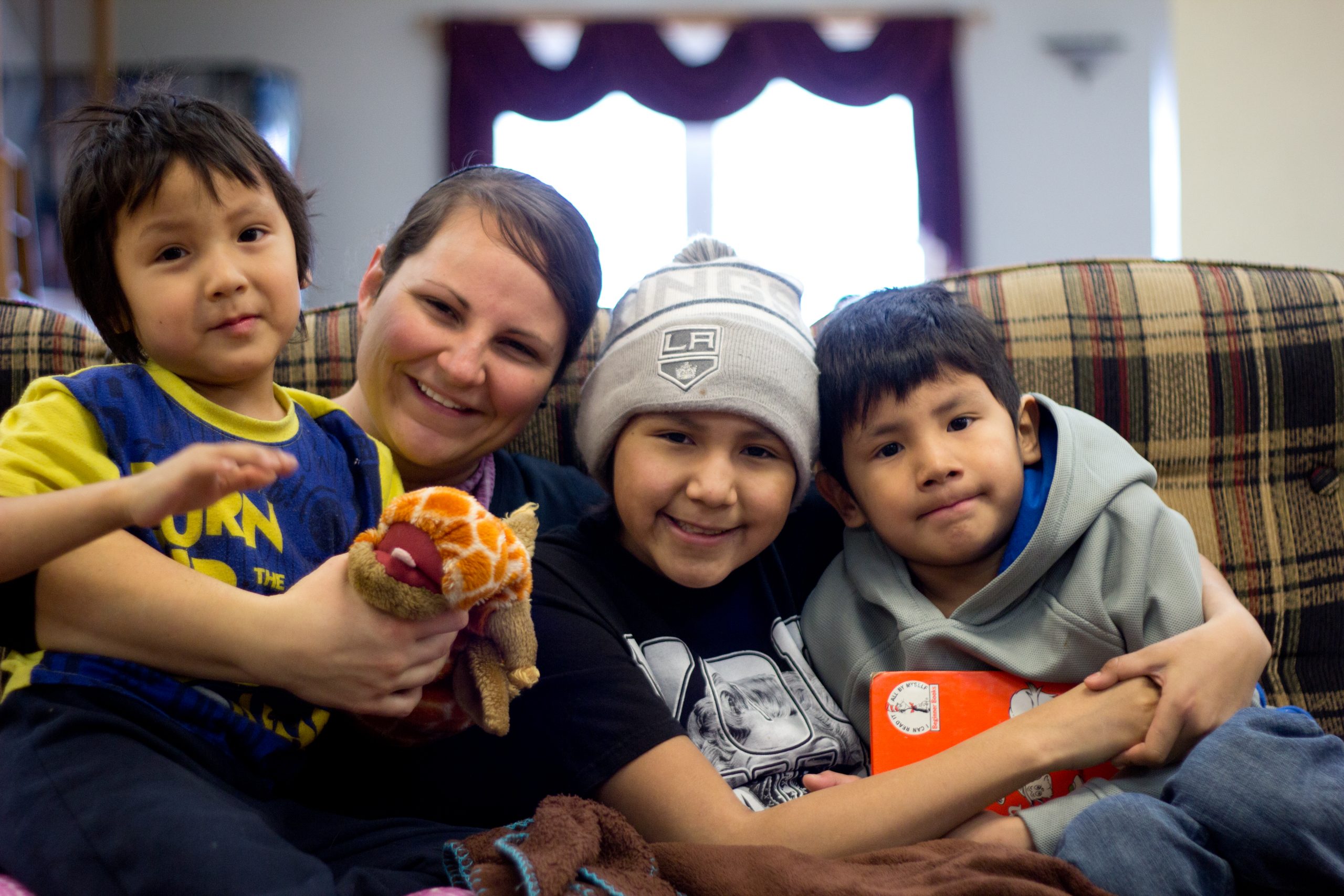
Personal Work
In spite of the adjustments and difficulties, Lori loves her job. According to the camp website, Beaver Lake “provides a place where people can learn about God, receive spiritual and emotional healing, and build their relationships with those around them.” Their ministry is among the First Nations people of northern Ontario, many of whose lives have been torn by alcohol, drugs, abuse, and suicide.
“I’m the personal worker, and my main focus is working with the families who come in for counseling,” Lori said. “I do child care and have craft time with the ladies. That’s my favorite part of my job. The other day I was having craft class with a lady, and listening to her tell her story, and I thought, ‘It’s not even fair. This is my job, and I LOVE it!’ ”
Lori also helps with a girls’ club in town, reaching out to girls ages 9-14 with activities, singing, talk time, and crafts. She tries to find time to take each girl out for her birthday, and if she knows that a girl has something she would like to talk about, Lori spends one-on-one time with that girl.
During summer camp time, when Beaver Lake hosts four different camps for children and teens, Lori is the one who spends time with a kid that’s causing trouble or needs extra attention and subs for counselors who need some down time. “I get to know more kids that way.” She helps throughout the year at various retreats hosted at Beaver Lake Camp, and in between events she helps with laundry, cooking and cleaning, which she also enjoys. “It’s good to give my heart some space from people and fun to work with my hands.”
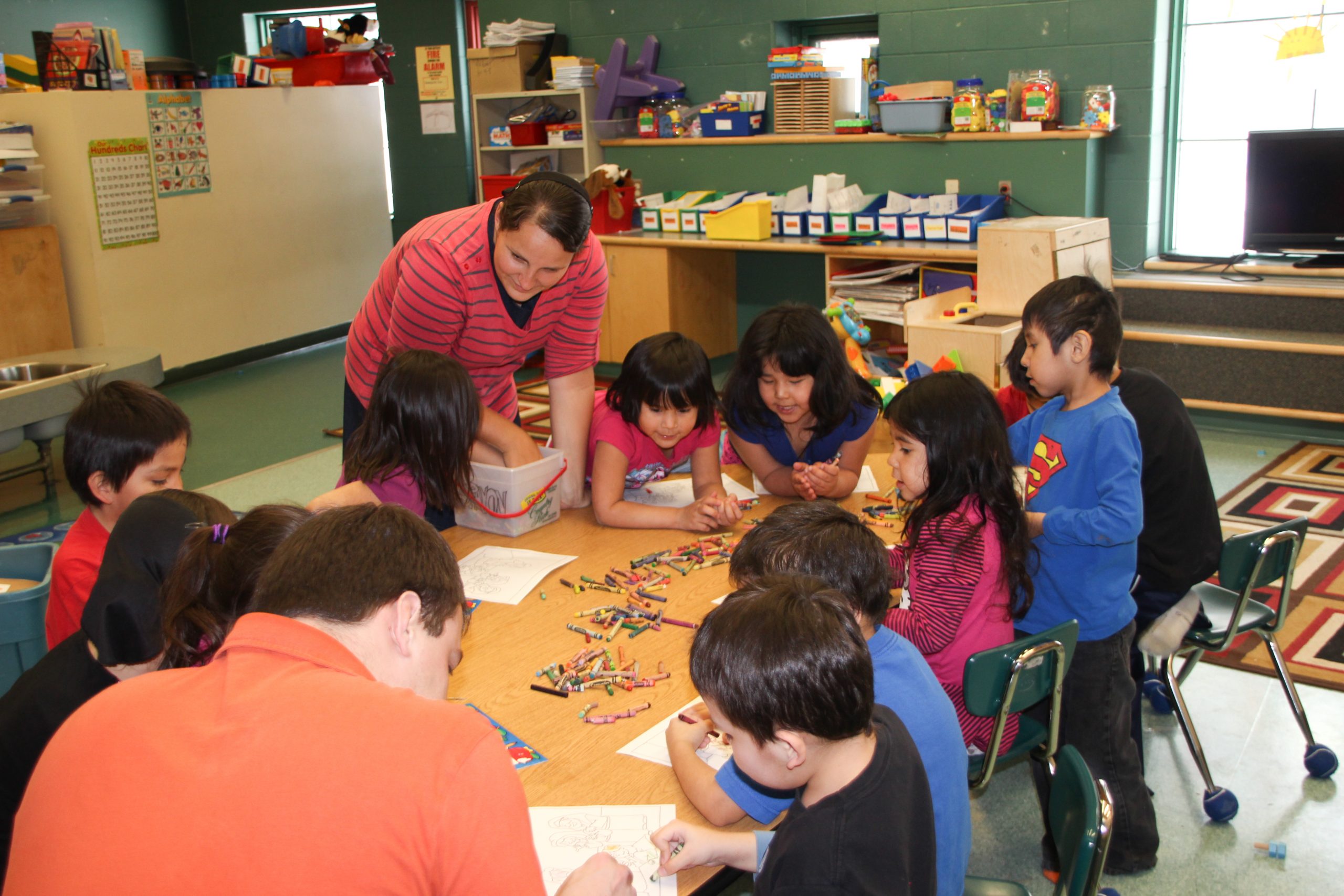
The Journey to Beaver Lake
Lori first came to the North when she was eighteen, for a summer program called Personal Workers Training Camp that flew young people into northern reserves beyond the reach of roads. She was flown into a small reserve called Wapekeka, where she built long-lasting relationships; and she ended up returning to that same community for a total of three summers.
When her family was called to Cambodia, Lori felt frustrated. “I felt such a burden for the people of the North, so why Asia?” But neither did she want to leave her family at such a pivotal time. In the end, she committed to one year in Cambodia (her family had committed to three) and also told God that she wouldn’t apply to any other mission field, but wait until she was asked to go somewhere.
During her year, Lori grew to love the people of Cambodia, but she didn’t love her job there: teaching English. Summer was difficult, because she wanted to be with the people of Wapekeka, helping them deal with the bullying and suicides that rocked their small community–and found herself instead on the other side of the world.
When her year was almost over, Lori thought, “Duh, Lori! You told God you wouldn’t pursue another mission unless they asked, but who’s going to ask you to their mission when you’re already on the mission field?”
She prayed about it that night, planning to talk to her dad the next day…but when she looked at her phone the next morning, she had received an email from the director of Beaver Lake Camp, asking her to come as a personal worker.
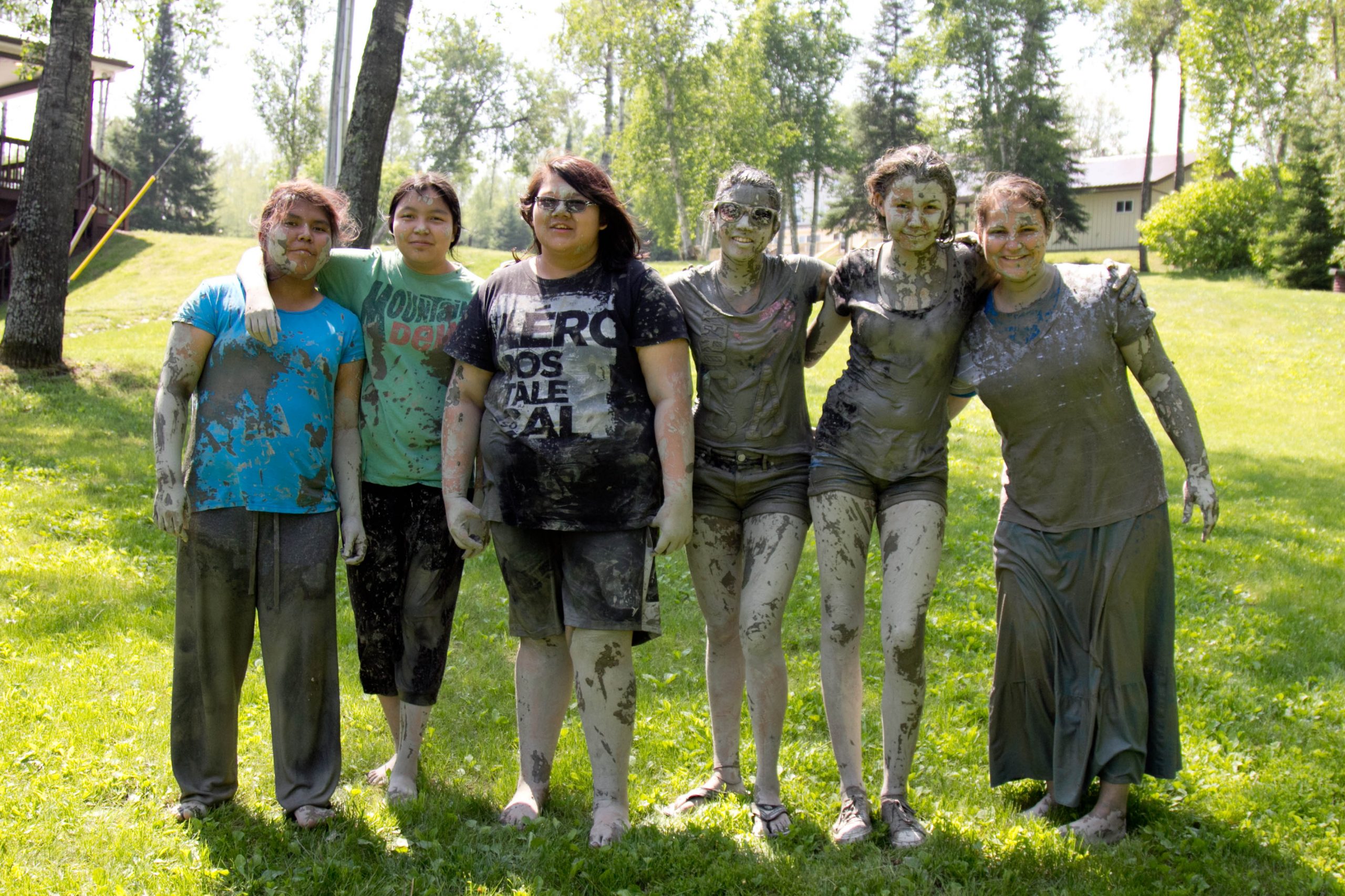
Friendships that Matter
Lori has many precious friendships among the First Nations people. One young girl, whom I will call Nora, she met when she helped to teach a Guys and Girls of Value class at Nora’s school–classes aimed at teaching young people that they have belonging, worth, and competence.
“Nora was special,” Lori told me. “I noticed her out all by herself. She was talking to someone, but no one was with her, so I went out to talk to her and she told me all about her imaginary friend. I didn’t know how to respond. I knew it was a coping mechanism for her.”
Nora’s family later came to Beaver Lake for counseling, and Lori got to spend a lot of time with Nora and learn more of her story. Because of difficulties in the home, Nora and her siblings had been put into foster care. Nora had been separated from her older brother and didn’t feel safe in the home where she was put with her younger brother.
“It was hard to see them go home,” Lori said, “knowing they didn’t want to go and that they would be separated from their family again.”
But with hard work, Nora’s parents were eventually able to get the whole family back together again, and Nora’s mom sent a note of thanks: “Tell the staff at Beaver Lake that since I was there everything is going well. There’s no more drinking and no more fighting.”
“We hardly ever get notes like that,” Lori said, “so that was really cool. People come here and change inside, but when they go back to their community everyone else expects them to be the same. So it’s hard for them to keep the ground they’ve gained.
“But a lady came here for church recently, and she told us in Sunday school class what an impact Beaver Lake had on her life, and she had been here twenty or thirty years ago.
“So what we do does make a difference. It’s all about those seeds we can plant somewhere.”
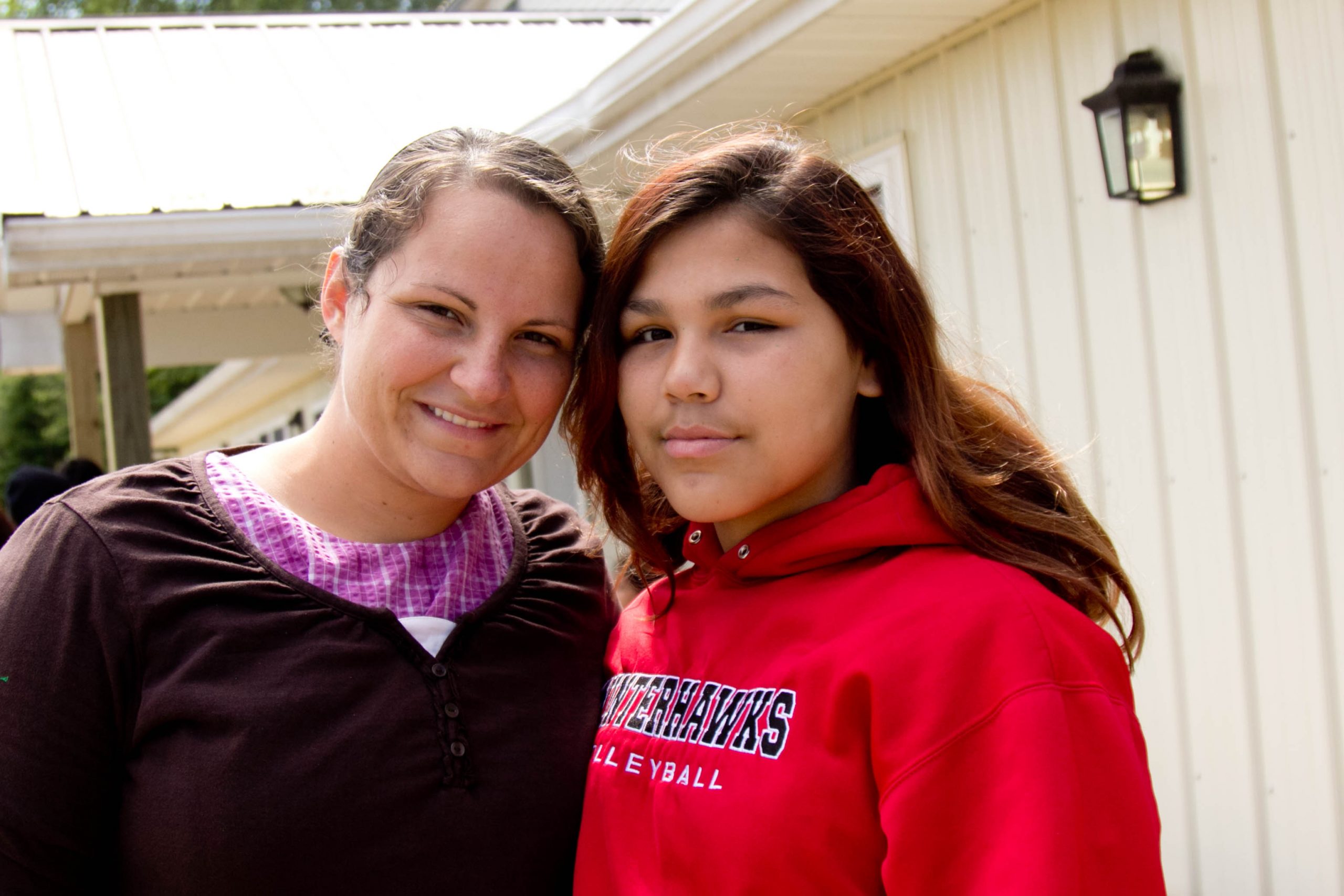
In Weakness, Strength
“Just this past week,” Lori said, “I was really, really struggling with the thing of not knowing where my home is. I felt this darkness and distance from God. And here it was coming up to youth retreat, and I wondered, ‘How can I give anything?’ I felt so empty.
“I thought I had to get this belonging thing figured out before youth retreat, and I was gonna talk to someone, but it didn’t work out. I took a few hours of quiet time, and I was praying about this darkness. I was reading in Psalm 18, and found this verse. ‘For thou wilt light my candle: the Lord my God will enlighten my darkness.’
“I was so excited. It was just what I needed. I didn’t have the whole belonging thing figured out, but I felt peace to plug into the weekend.
“Then at cabin time when I went to visit each cabin, I saw one girl sitting outside by herself. I sat down with her and asked if she was okay. She started crying and opened up and shared her story. Such a sad story, of growing up hearing her Dad beat up her mom. She was homesick, yet she had wanted to come to this retreat because it was better away from her family.
“She said, ‘I just don’t feel like I belong anywhere.’
“And I just sat there and cried with her. I understood. My story is not as awful, but I had that point of connection, and I could hear her heart’s cry. My weakness, the thing I thought I needed to figure out before I could help anybody is the thing God used to work through me.
“It was amazing.
“So many times I think I have to have everything together, but often it’s in the times when I am weakest and feel helpless that He comes through and uses silly me in other people’s lives.”
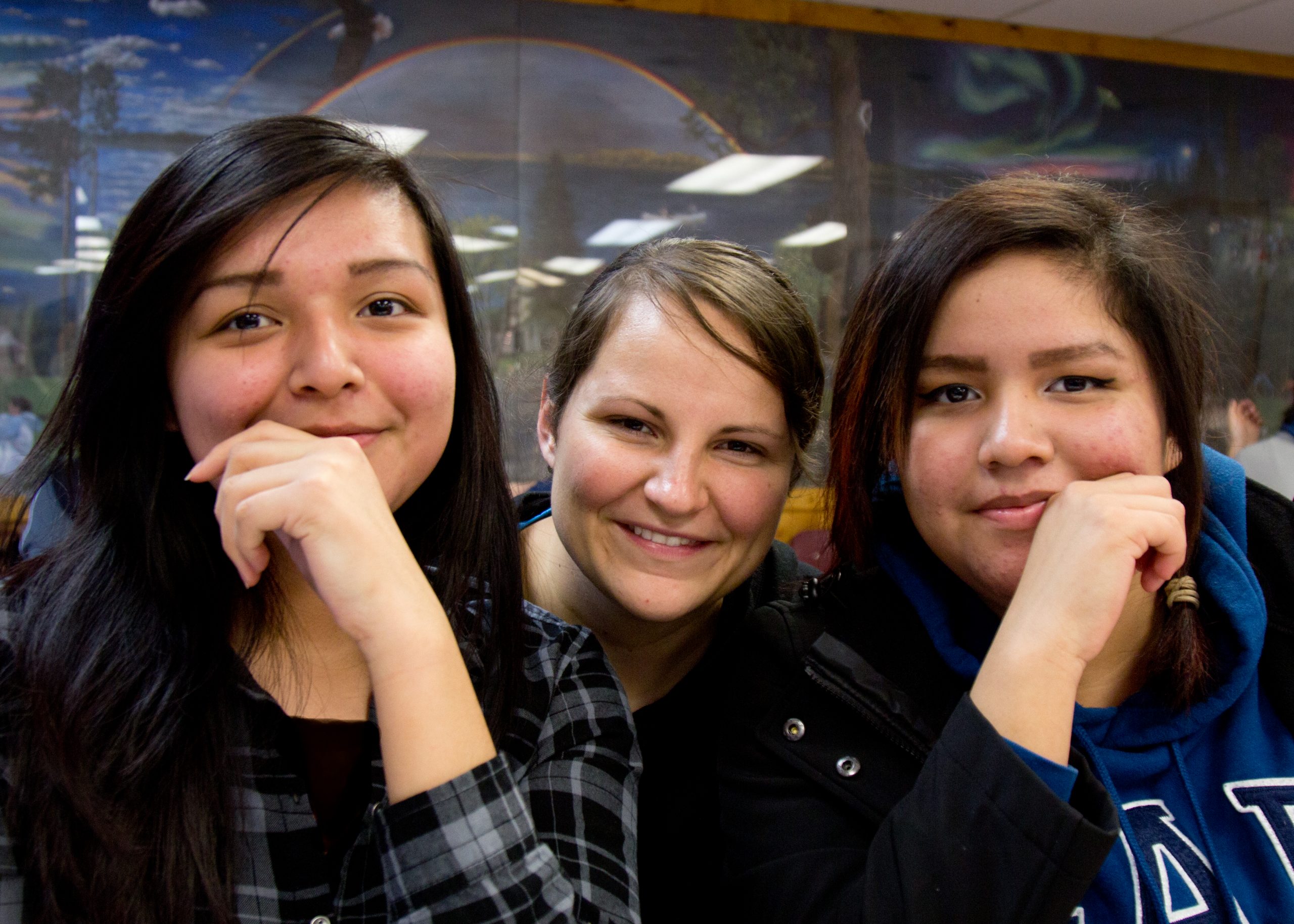
***
This article was written for Daughters of Promise magazine, following the tradition of the Women in the Trenches columns I once wrote for that publication. For more Women in the Trenches articles, visit this page.
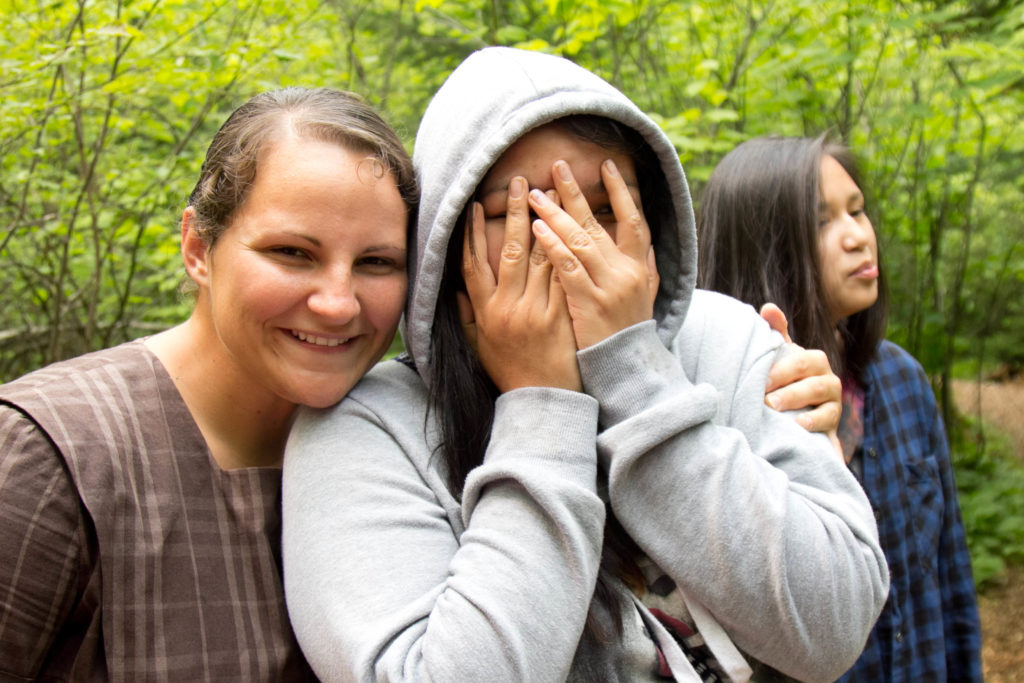
God bless her!
Yes, that home thing. Thank you so much!
“So many times I think I have to have everything together, but often it’s in the times when I am weakest and feel helpless that He comes through and uses silly me in other people’s lives.” THIS, yes, THIS is so true! Thanks for the reminder today!
There’s a long history of God’s people being sojourners–Abraham, Moses, Ruth, David, Jesus. It’s hard, and yet that feeling of homelessness helps us yearn for our true Home.
Lovely article!
As I read this, my response was similar to Rosina’s with this melody running through my head: “This world is not my home, I’m just a traveling’ through. If heaven’s not my home, dear Lord what will I do . . . ”
All followers of Christ are really pilgrims on our journey to our true home. [youtube https://www.youtube.com/watch?v=xqRpyG0W96k&w=560&h=315%5D